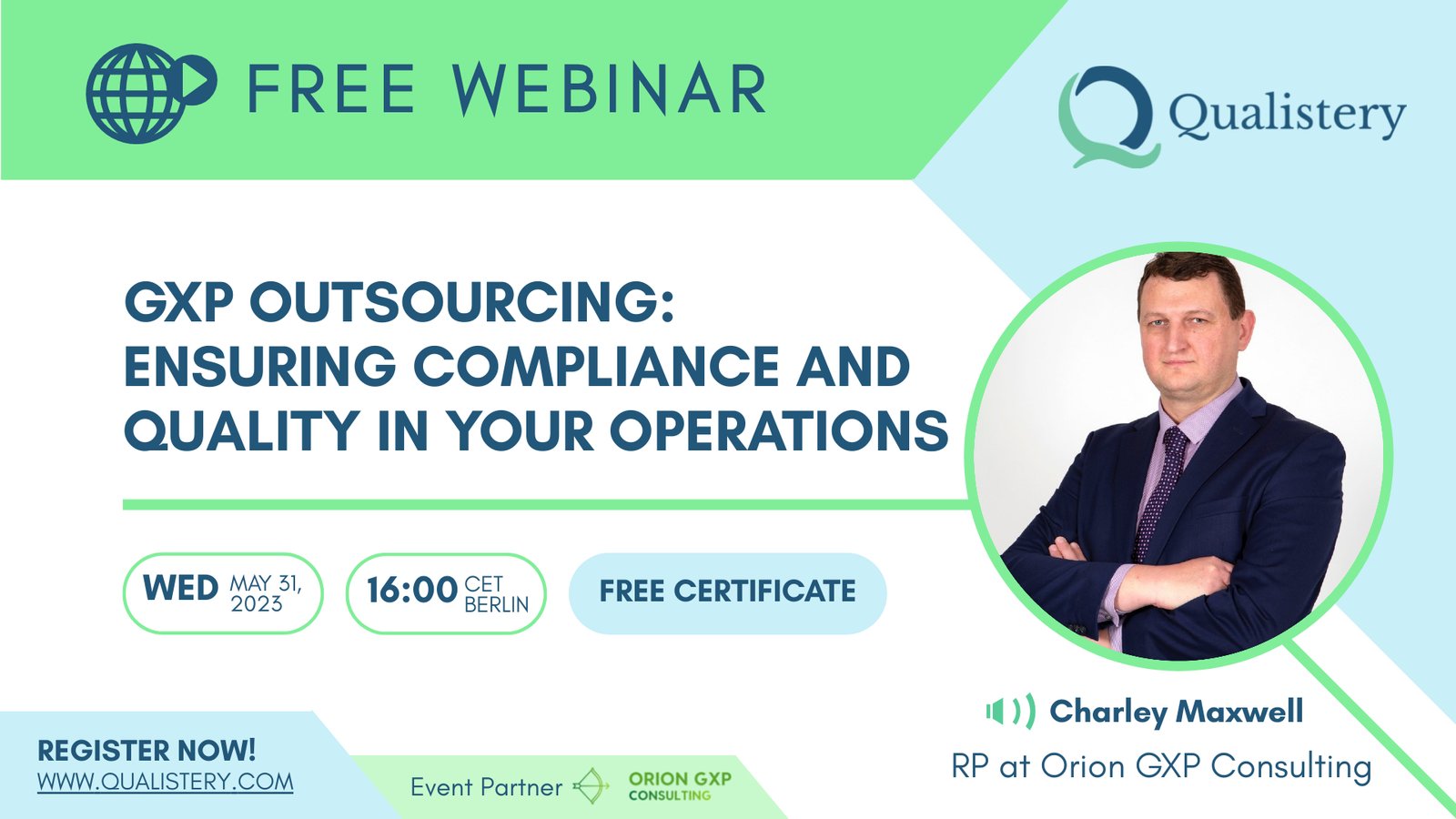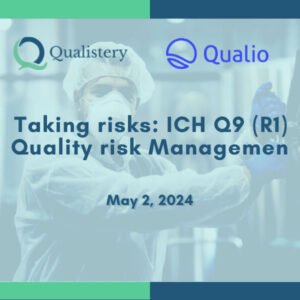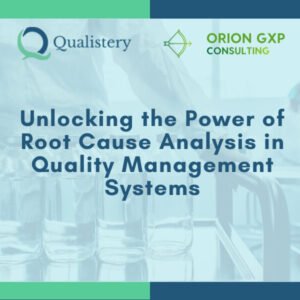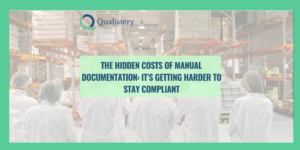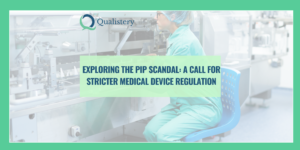Introduction
Outsourcing specific parts of the manufacturing process is a usual practice in the pharmaceutical industry. It offers numerous benefits to pharma companies, allowing them to leverage external expertise, resources, and specialized facilities to produce drugs more efficiently and effectively. By entrusting certain manufacturing activities to contract facilities, pharma companies can concentrate on their core competencies and strategic objectives.
When a pharmaceutical company chooses to outsource certain parts of its manufacturing process, it is important to note that the company retains legal responsibility for the quality of the drug. Even though specific manufacturing activities may be delegated to contract facilities, the pharma company remains accountable for ensuring compliance with current regulations of themselves and the contract acceptor.
This is clearly stated in the chapter of the EU-GMP Guidelines:
7.4 “The pharmaceutical quality system of the Contract Giver should include the control and review of any outsourced activities. The Contract Giver is ultimately responsible for ensuring processes are in place to assure the control of outsourced activities.”
In this article, we will provide a comprehensive overview of an effective outsourcing process in the pharmaceutical industry. We will explore the importance of supplier qualification, the establishment of clear and comprehensive contracts, the role of Qualified Persons (QPs), and the need for ongoing requalification. By understanding and implementing these critical elements, pharmaceutical companies can navigate the outsourcing landscape successfully, maintain high standards of quality and compliance, and ensure the delivery of safe and effective pharmaceutical products to patients.
Qualification
A comprehensive and effective supplier qualification process is crucial for the success of outsourcing operations in the pharmaceutical industry. Supplier qualification involves a systematic and rigorous evaluation of potential contractors or material suppliers to determine their legality, suitability, and competence in carrying out the outsourced activities. This evaluation encompasses a meticulous assessment of various factors, including regulatory compliance, technical capabilities, quality systems, track record, and financial stability.
During the supplier qualification process, thorough research on the vendor is of utmost importance. Accessing available reports from authorities, such as EMA warning letters and non-compliance reports, as well as utilizing information from databases like the Eudra GMDP, provides valuable insights into the supplier’s regulatory compliance history. These sources shed light on any past instances of non-compliance and highlight potential risks that may arise from engaging with the supplier.
Besides research, conducting a thorough audit is crucial to identify potential risks associated with the supplier’s materials, processes, or services. An audit typically consists of seven key steps: critical supplier determination, planning, scheduling, pre-audit preparation, onsite audit and report preparation.
Let’s see what each one of them entails:
1. The first step is to determine which suppliers are the most critical to ensure the quality of the product. A Risk-Based Supplier Audit Plan is a comprehensive strategy for reviewing the importance of materials and services supplied by pharmaceutical vendors. These plans are designed to identify any potential risks posed by suppliers and provide valuable insights to decide which vendors (and in which order) to audit.
2. Planning includes determining the audit’s type, scope, and specific objectives. The risk assessment of the previous step should also help determine the scope and requirements of the audit.
3. For scheduling, the QA department of the pharma company should contact the auditee to arrange an agenda and exchange relevant information.
4. For pre-audit preparation, the lead auditor requests pre-read materials such as the quality manual, the site master file, GMP certificates, or reports from prior inspections. A pre-audit questionnaire is also an essential tool in pre-audit preparation to focus on areas of risk and uncertainty.
5. The onsite audit involves going to the supplier’s facilities to evaluate their quality management system and conducting process inspections. During this phase, the auditor will spend most of the time reviewing operations, observing ongoing processes, interviewing relevant staff and requesting additional documentation.
6. The audit report is the responsibility of the lead auditor and should include the scope, objective and major findings.
By integrating all these information sources, pharmaceutical companies can make informed decisions during the supplier qualification process, identify any areas of concern, and ultimately mitigate risks associated with non-compliant suppliers.
Contract
Once the supplier has been selected, it is crucial to establish an effective contract to ensure a successful outsourcing partnership. The outsourcing contract should encompass key elements that foster a clear understanding of responsibilities and facilitate effective communication between the Contract Giver and the Contract Acceptor.
Firstly, the contract should clearly define the respective responsibilities of each party and establish communication processes pertaining to the outsourced activities. This provides a solid framework for collaboration, ensuring that both parties are aligned and aware of their roles and obligations.
Moreover, the contract should address the technical aspects of the agreement, leveraging the expertise of individuals knowledgeable in the relevant outsourced activities and Good Manufacturing Practice (GMP). By drawing upon this expertise, the contract can effectively outline the necessary quality standards, processes, and procedures to be followed throughout the outsourcing arrangement.
It is imperative that all arrangements within the contract align with cGMP and the Marketing Authorisation for the specific product. This ensures compliance with regulatory requirements and validates that the outsourced activities adhere to the necessary standards and guidelines.
Furthermore, the outsourcing contract should provide clarity on each step of the outsourced activity to ensure a well-defined and coordinated process. It should explicitly outline the various aspects involved, including knowledge management, technology transfer, supply chain management, subcontracting arrangements, as well as the quality and purchasing of materials. Additionally, the contract should address critical elements such as the testing and releasing of materials, production procedures, and robust quality controls encompassing in-process controls, sampling, and analysis.
In addition to process-related considerations, the contract must also address the crucial matter of record accessibility. It should clearly outline the requirements for maintaining and providing access to records pertaining to the outsourced activities. This encompasses important documentation such as manufacturing records, analytical data, distribution records, and reference samples. By ensuring the Contract Giver’s access to these records, the contract enables thorough product quality assessments, effective handling of complaints, prompt investigation of suspected defects, and enhanced detection of potential falsified products.
Importantly, the contract should include provisions allowing the Contract Giver to conduct audits of the outsourced activities. This audit right grants the Contract Giver the authority to verify compliance, monitor quality, and ensure adherence to the agreed terms and standards. By conducting regular audits, the Contract Giver can actively assess the performance of the contract acceptor, identify areas for improvement, and maintain ongoing quality assurance throughout the outsourcing arrangement.
Qualified person
The role of the Qualified Person (QP) in the pharmaceutical industry is of utmost importance in ensuring the quality and compliance of pharmaceutical products. A QP is an individual with the required qualifications, experience, and expertise to certify the release of medicinal products for distribution. Their primary responsibility lies in ensuring that each batch of the medicinal product has been manufactured in accordance with Good Manufacturing Practice (GMP) and the requirements specified in the Marketing Authorisation.
The QP’s role extends throughout the entire manufacturing process, encompassing each critical step from the sourcing of raw materials to the final product. Their diligent oversight ensures that all stages meet the stringent standards of quality and compliance. In the context of outsourcing, this responsibility may be shared among multiple QPs (e.g. one from the contract giver and one from the contract acceptor), each contributing their specialized knowledge and expertise to verify specific steps in the manufacture and control of a batch.
By dividing the confirmatory responsibilities among multiple QPs, the pharmaceutical company can enhance the rigor and accuracy of the batch release process. Each QP assumes accountability for the specific stages they are responsible for in the outsourced manufacturing process. This collaborative approach leverages the unique qualifications and experience of each QP, ensuring that critical steps undergo a thorough assessment.
This shared responsibility of the QPs is typically governed by a well-defined quality agreement between the product owner and the contract facility. This agreement outlines the specific roles, duties, and communication channels between the involved QPs. It ensures that both of them understand their designated areas of responsibility, are aligned in their understanding of quality expectations and regulatory compliance requirements. Additionally, the quality agreement also facilitates clear communication and coordination between the QPs, enabling effective collaboration throughout the manufacturing and control processes.
By establishing a clear framework through the quality agreement, the pharmaceutical company can maintain effective oversight and ensure that all outsourced laboratory work adheres to the necessary standards under the scrutiny of a QP.
Requalification
Even after the selection and engagement with an outsourcing partner, it remains imperative to maintain vigilant oversight of the supplier and conduct periodic requalification processes.
The need for requalification of suppliers in pharma outsourcing arises from the dynamic nature of the pharmaceutical industry and the continuous pursuit of quality and compliance. Requalification serves as a critical process to ensure that suppliers maintain their suitability, competence, and adherence to regulatory requirements over time.
As industry standards, regulations, and technologies evolve, requalification allows pharma companies to assess and confirm that their suppliers continue to meet the necessary standards and expectations. This includes evaluating factors such as changes in the supplier’s processes, personnel, facilities, and quality systems. The requalification of suppliers isnot bound by fixed time standards but it needs to be periodically. A requalification every 3 to 5 years is a common practice in the industry.
Requalification activities may involve conducting periodic audits, reviewing updated documentation, and assessing any changes that may impact the quality and safety of the outsourced activities. By implementing a robust requalification process, pharmaceutical companies can uphold the integrity of their supply chain, mitigate risks, and maintain the highest standards of quality and compliance in their outsourcing partnerships.
Conclusion
In conclusion, outsourcing in the pharmaceutical industry offers valuable advantages, allowing companies to tap into external expertise and resources while focusing on their core competencies. However, it is crucial to remember that the pharmaceutical company retains legal responsibility for the drug’s quality, even when certain manufacturing activities are outsourced. The pharma company must ensure compliance with regulations and maintain control over outsourced activities.
Effective outsourcing begins with a comprehensive supplier qualification process, involving thorough audits and gathering information from various sources. This process helps identify potential risks and select reliable partners. Clear and well-defined contracts between the contract giver and acceptor are essential. These contracts should outline responsibilities, communication processes, technical aspects, and adherence to regulatory requirements. The role of the Qualified Person (QP) is another important factor to consider, and in cases where multiple QPs are involved, a quality agreement should define their responsibilities and collaboration.
Ongoing requalification of suppliers is vital to ensure their ongoing suitability, competence, and compliance. This process, which may involve periodic audits and assessments, helps mitigate risks and maintains high standards of quality and compliance in outsourcing partnerships.
By diligently managing the outsourcing process, pharmaceutical companies can optimize their operations, uphold quality and compliance, and ensure patient safety.
Don’t miss this opportunity to learn from our industry expert, Charley Maxwell, to learn more about strategies for effective communication and ongoing oversight to develop strong relationships with partner organizations:
